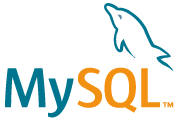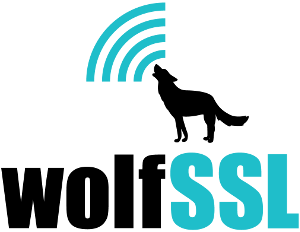wolfSSL 3.13.0 is now available for download! wolfSSL 3.13.0 includes bug fixes and new features, including support for TLS 1.3 Draft 21, performance and footprint optimizations, build fixes, updated examples and project files, and one vulnerability fix.
Continue reading below for a summary of the features and fixes included in this release!
Protocol Changes:
* Fixes for TLS 1.3, support for Draft 21
* TLS 1.0 disabled by default, addition of “–enable-tls10” configure option
Performance and Size Optimizations:
* New option to reduce SHA-256 code size at expense of performance (USE_SLOW_SHA256)
* New option for memory reduced build (–enable-lowresource)
* AES-GCM performance improvements on AVX1 (IvyBridge) and AVX2
* SHA-256 and SHA-512 performance improvements using AVX1/2 ASM
* SHA-3 size and performance optimizations
* Fixes for Intel AVX2 builds on Mac/OSX
* Intel assembly for Curve25519, and Ed25519 performance optimizations
* Allow adjusting static I/O buffer size with WOLFMEM_IO_SZ
Build Option Updates:
* New option to force 32-bit mode with “–enable-32bit”
* New option to disable all inline assembly with “–disable-asm”
* Ability to override maximum signature algorithms using WOLFSSL_MAX_SIGALGO
* Removes 3DES and SHA1 dependencies from PKCS#7
* Adds ability to disable PKCS#7 EncryptedData type (NO_PKCS7_ENCRYPTED_DATA)
Feature Additions:
* Add ability to get client-side SNI
* Expanded OpenSSL compatibility layer
* Adds static memory support to the wolfSSL example client
* Adds option to wolfCrypt benchmark to benchmark individual algorithms
* Adds option to wolfCrypt benchmark to display benchmarks in powers of 10 (-base10)
Updated Project Files:
* Updated Visual Studio for ARM builds (for ECC supported curves and SHA-384)
* Updated Texas Instruments TI-RTOS build
* Updated STM32 CubeMX build with fixes for SHA
* Updated IAR EWARM project files
* Updated Apple Xcode projects with the addition of a benchmark example project
Build and Feature Fixes:
* Fixes for handling of unsupported TLS extensions.
* Fixes for compiling AES-GCM code with GCC 4.8.*
* Fixes for building without a filesystem
* Fix for logging file names with OpenSSL compatibility layer enabled, with
WOLFSSL_MAX_ERROR_SZ user-overridable
* Fixes for sniffer to use TLS 1.2 client method
Vulnerability Fix:
This release of wolfSSL fixes 1 security vulnerability.
wolfSSL is cited in the recent ROBOT Attack by Böck, Somorovsky, and Young. The paper notes that wolfSSL only gives a weak oracle without a practical attack but this is still a flaw. This release contains a fix for this report. Please note that wolfSSL has static RSA cipher suites disabled by default as of version 3.6.6 because of the lack of perfect forward secrecy. Only users who have explicitly enabled static RSA cipher suites with WOLFSSL_STATIC_RSA and use those suites on a host are affected. More information will be available on our website at:
https://wolfssl.com/wolfSSL/security/vulnerabilities.php
For additional documentation, please visit our Docs page, or contact us at facts@wolfssl.com.



